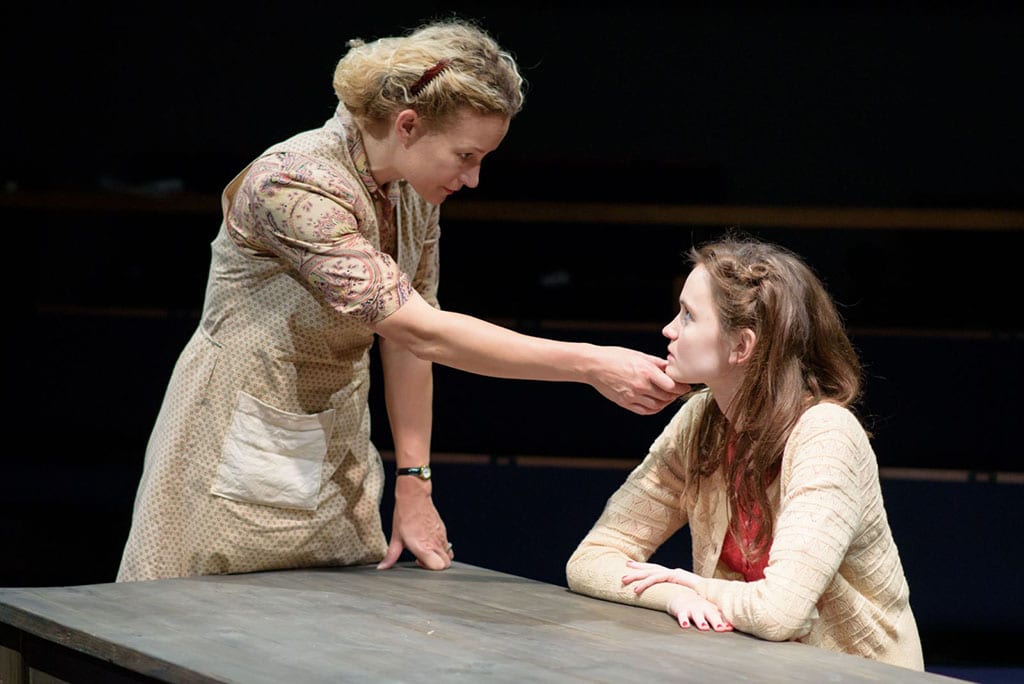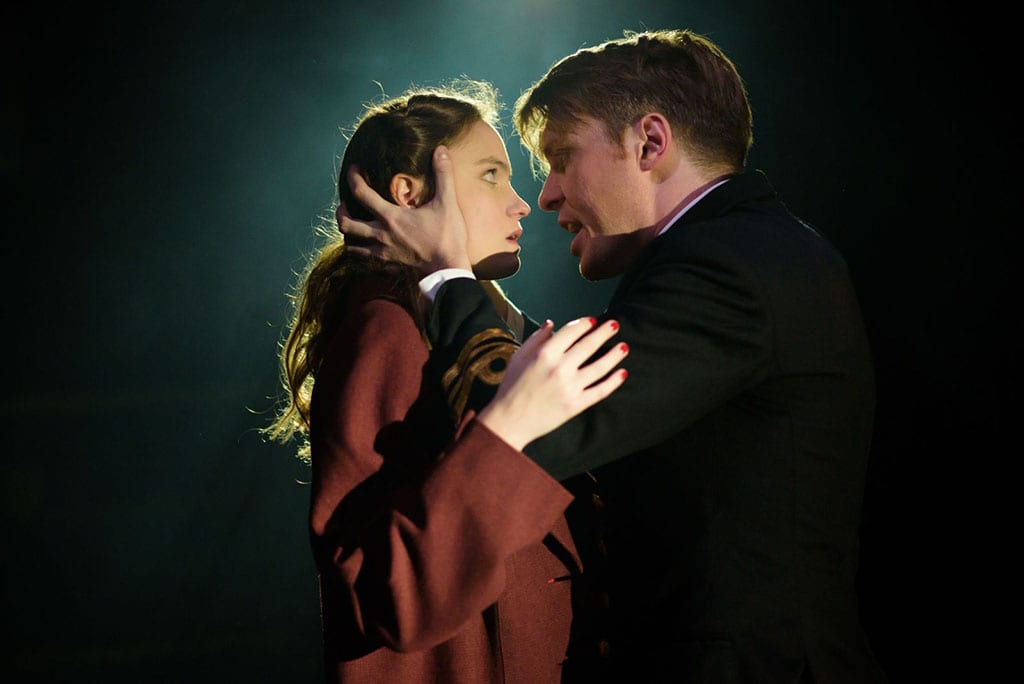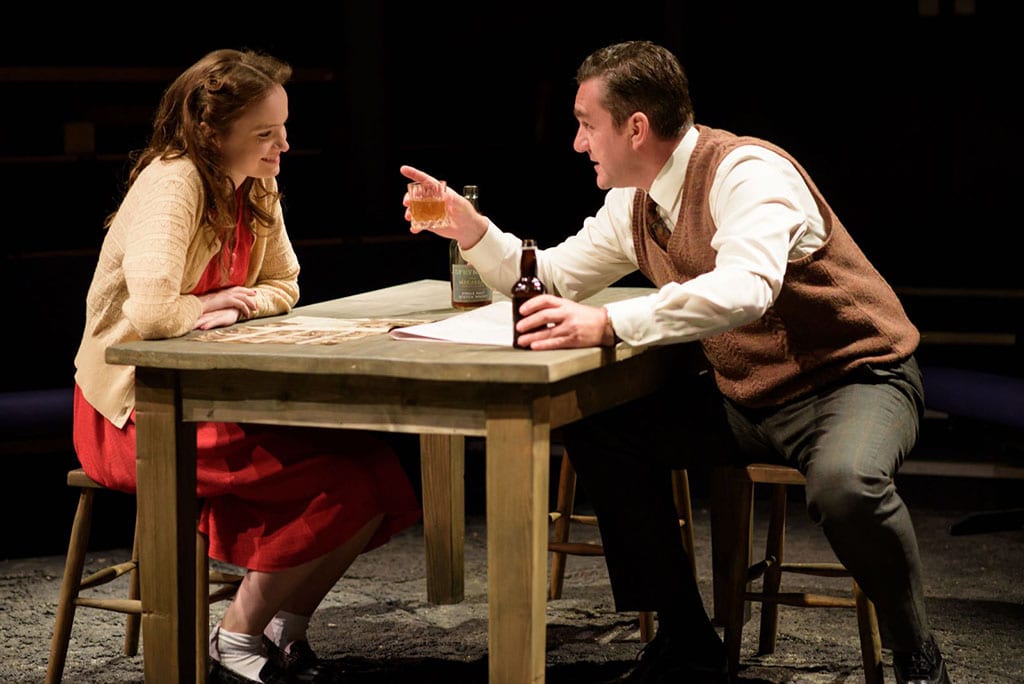Sharman Macdonald returns to Glasgow, the city of her birth for the setting of this play, he opening production of the Orange Tree Theatre’s second season under the resourceful direction of Paul Miller.
Period-wise, Macdonald is venturing into a period seven or eight years before her own birth, but she knows absolutely what she is doing.
Certainly there is no sentimentality in this tale of two couples (who also represent two generations) in wartime.
Staging and acting are both devotedly determined and accurate in hitting nails on the head, those nails being character and situation and the relations between the sexes, accepted as they were in this time and milieu.
What all this boils down to is that Men should bring in money to keep the household going, assuming they have anything to spare from their drinking money. Everything else is the responsibility of the wife. Her main duty, of course, is to find out what her husband wants and make sure he gets it.
However, no one should assume that this plays is a two-hour-long feminist diatribe.
We move, repeatedly and in a trice, from incredulous laughter or sharp intakes of breath provoked by self-satisfied male obtuseness, to choking back tears or sighs provoked by moments when, you are brought to a realization that by the standards of the time and place, what we are looking at is two genuine marriages.
But, for all that, this play does not have a happy ending. Things will go on much as they have, at least for a time.
Men will assume that they are in charge, and that it is the wife’s responsibility to keep the marriage on the road.
Nevertheless, there is a feeling that this situation cannot last for ever. The writing is on the wall for the men––and some of them are beginning to be aware of that. At the end of the play, the women are asserting (albeit only to themselves for the most part) that they see no reason to put up with ill-treatment meted out by complacent males.
As I have mentioned, the play is set in wartime and that fact is, of course, significant. Everyone is aware, as bombs fall on Glasgow, that the times call for resistance, which demands bravery and individual suffering.
There are no speeches, however, to this effect. The ‘message’ is conveyed by silences, looks, gestures, occasionally by tears (of sorrow sometimes, but often also of rage). And there is very little physical violence. It’s all in the mind.
The Orange Tree has good reason for pride in the wonderful teamwork which characterizes its productions and that is evident here in spades. All the actors mentioned above give luminous performances (even when the people they are playing are a very long way from being luminous).
The evening performance on 16 September and the matinee on 24 September will be followed by discussions free to ticket-holders. I hope some of the younger members of the audience will be there to hear that this play presents marriage as it was understood to be, in parts of this country within living memory.




